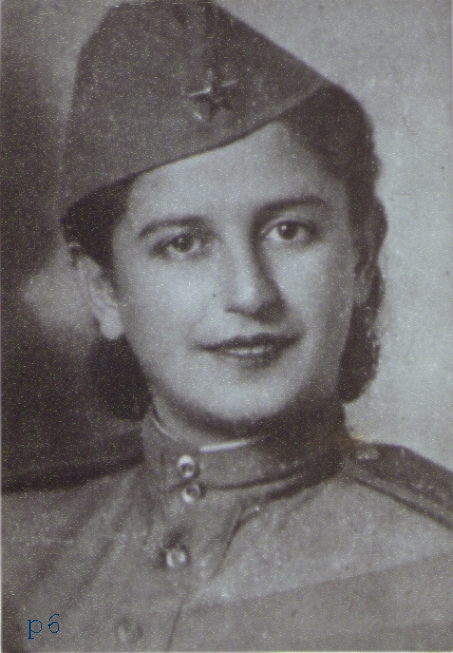Tatyana Lumelskaya was born in 1921 in the town of Malyn (Zhytomyr Oblast, Ukraine), in a Jewish family. Seven years later, the family moved to Yevpatoria, where Tatyana began to attend school. After completing her schooling, she enrolled in the Crimea Medical Institute.
In October 1941, three months after the outbreak of the Soviet-German War, Tatyana's medical institute was evacuated into the Soviet interior.
In 1943, Tatyana Lumelskaya graduated from the Institute, whereupon she was called up to serve in the military. She spent the next two years as a physician at frontline hospitals.
Tatyana's father was killed in action early in the war, in the battles for Sevastopol. Her mother, who had stayed behind in the Crimea, was murdered during the German-Romanian occupation, which saw the extermination of the local Jewish population.
In 1945, after the end of the Soviet-German War, Tatyana Lumelskaya was transferred to the Kuril Islands, which were occupied by Soviet troops following the declaration of war on Japan. She continued to serve as an army physician until 1953, eventually attaining the rank of captain.
After being discharged from the military, Tatyana Lumelskaya returned to Moscow. She worked as a district doctor at various clinics in the city.
In the late 1940s and early 1950s, at the time of the campaign against the "rootless cosmopolitans" – and especially during the "Doctors' Plot" – Tatyana Lumelskaya had to deal with antisemitism at her workplace. Some patients, upon learning that their doctor was Jewish, would express their displeasure, saying that they expected to see a "proper physician, and not a killer doctor." Only after Stalin's death in 1953 did her professional situation improve. Lumelskaya went on to work as a district doctor until 1990. That year, she immigrated to Israel with her family.
Tatyana Lumelskaya died in 2005.







